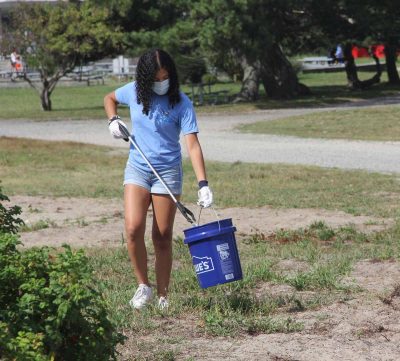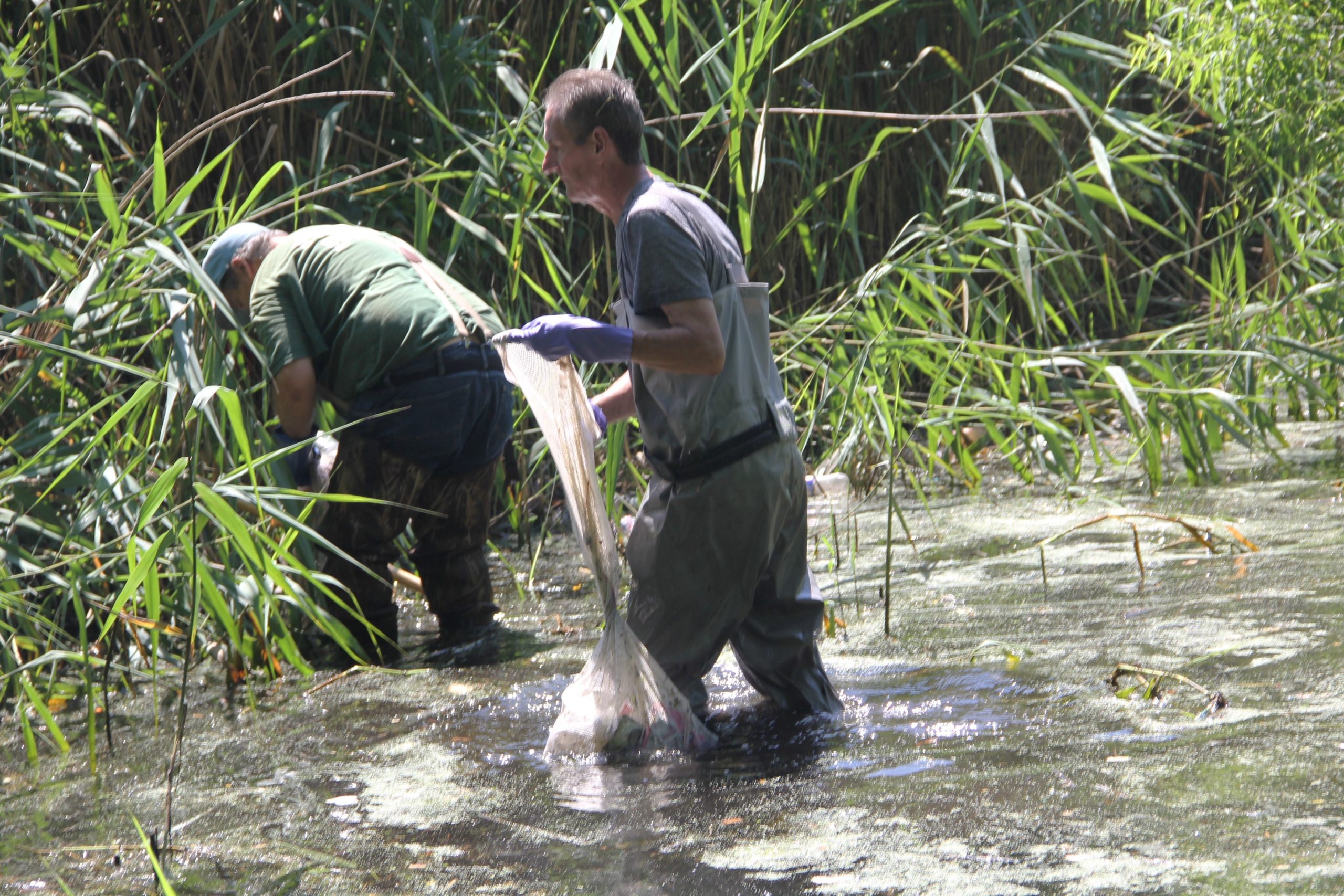
After a two-year planning process, the Long Island Sound Marine Debris Action Plan is approved and ready for implementation. The development of the five-year plan was co-led by the Connecticut and New York Sea Grant programs, with support from the NOAA Marine Debris Program and NOAA National Sea Grant. Individuals representing more than 50 academic institutions, non-governmental organizations, trade organizations, advocacy groups and county, state and federal agencies were actively involved in the planning, work groups and/or reviews.
The goals of the plan are to understand, prevent and mitigate the impacts of:
- single-use plastic and other water/land-based consumer debris
- abandoned and lost fishing/aquaculture gear
- microplastics and microfibers
Between 2022 and 2027, volunteer partners will strive to implement actions outlined for each goal. The plan facilitates old and new partnerships and collaborations to support both ongoing and new actions, as resources are available. Annual progress reports will provide a comprehensive picture of the progress achieved through 1) prevention, education and outreach; 2) research assessment, attention to wildlife impacts and monitoring; 3) proper disposal and infrastructure; 4) removal and/or source reduction and 5) policy and management.
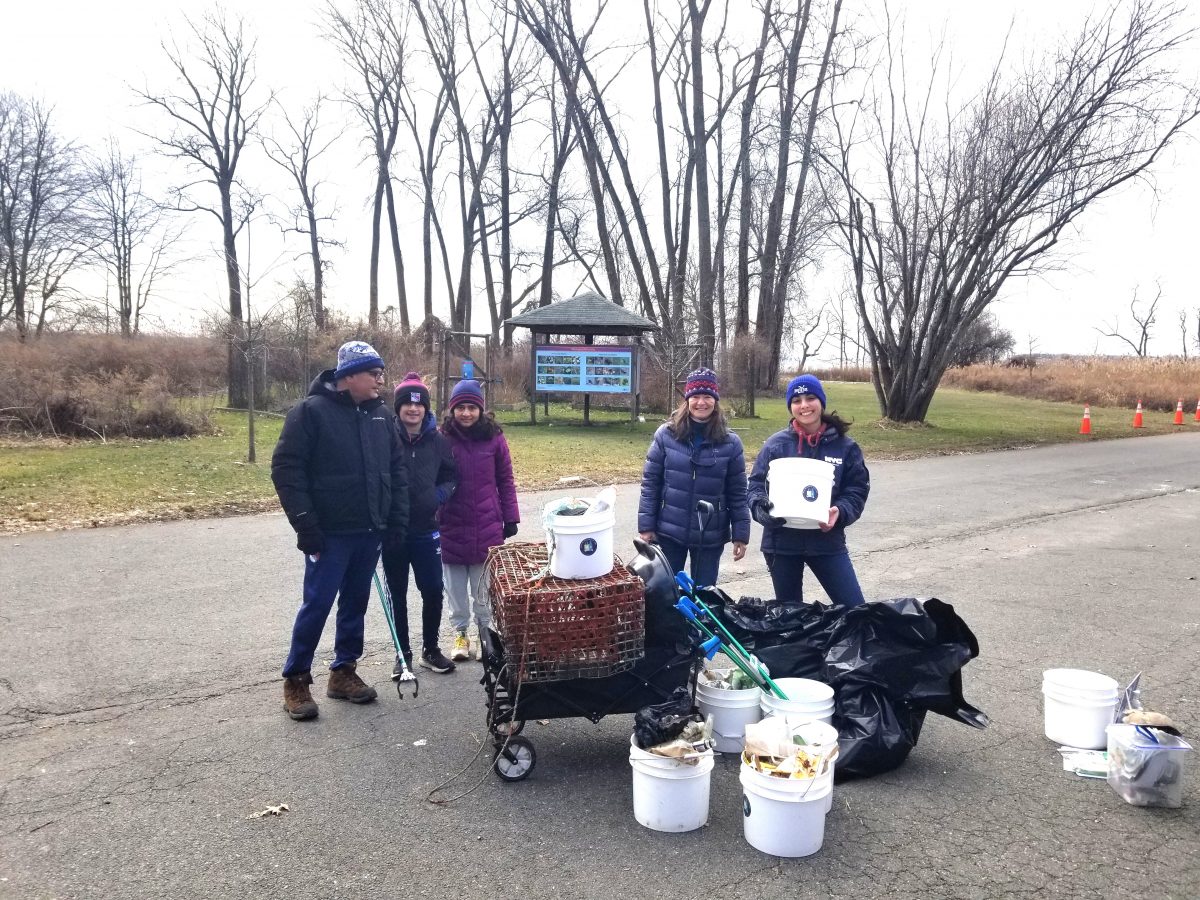
Marine Debris News
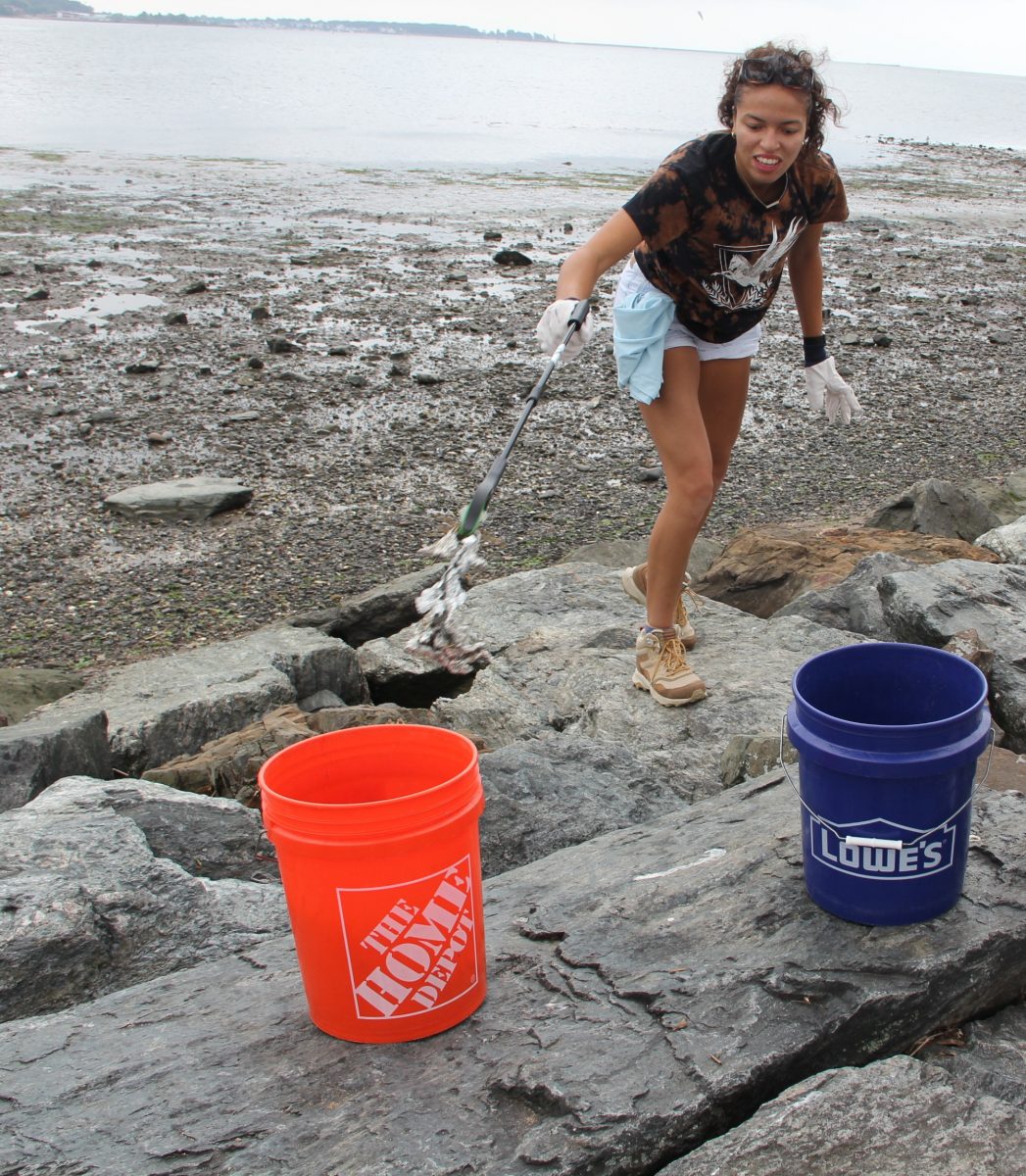
406 pounds of trash uplifted along with volunteers’ spirits
For Amanda Kostalis of Wallingford, spending a Saturday morning extracting plastic cups, food wrappers and other garbage from the rocks along the New Haven shoreline is a kind of public service therapy. “I try to volunteer as much as I can,” she said. “It helps to combat those feelings of hopelessness.”
[Read More]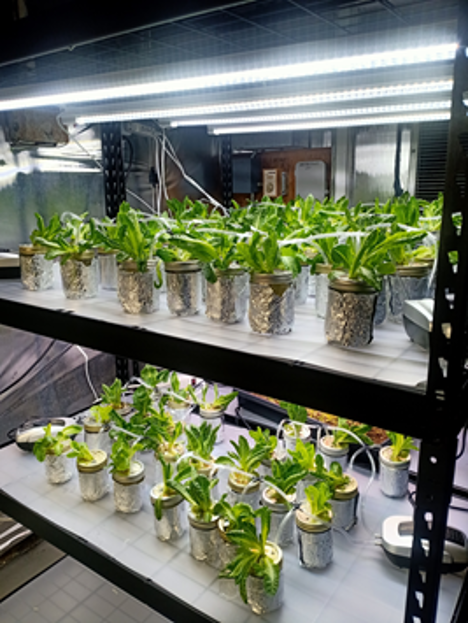
Help yourself and the environment by curtailing plastic use
This op-ed article, published in Connecticut newspapers, announced the kickoff of the 2025 #DontTrashLISound campaign and focuses on reducing plastic use and new research about how plastics are getting into food.
[Read More]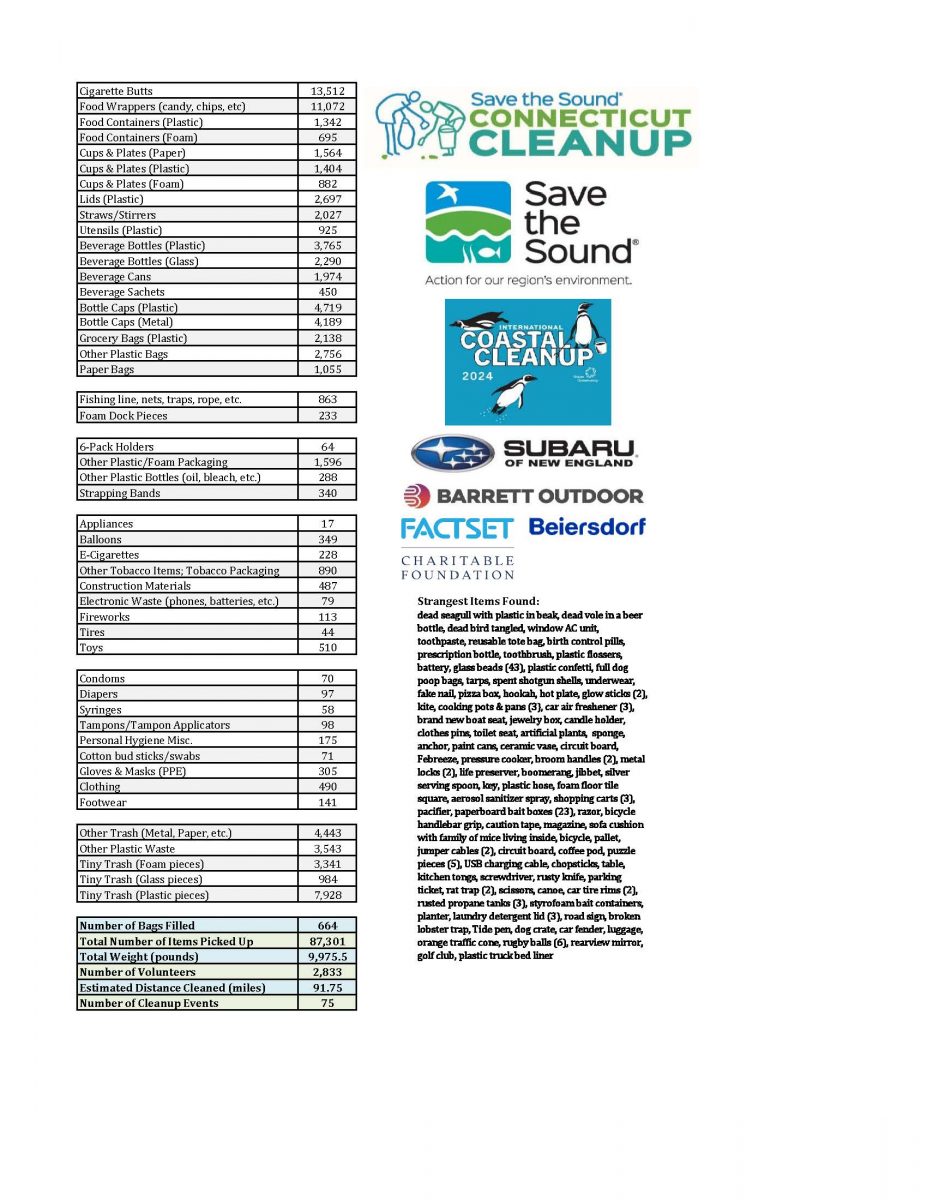
Almost 10,000 lbs. of trash cleaned from CT beaches in 2024
Data complied by Save the Sound from 75 cleanups along the Connecticut coastline, including several involving CT Sea Grant, shows that 9,975 pounds of trash was removed from beaches, roadways and parks in 2024, keeping it out of Long Island Sound.
[Read More]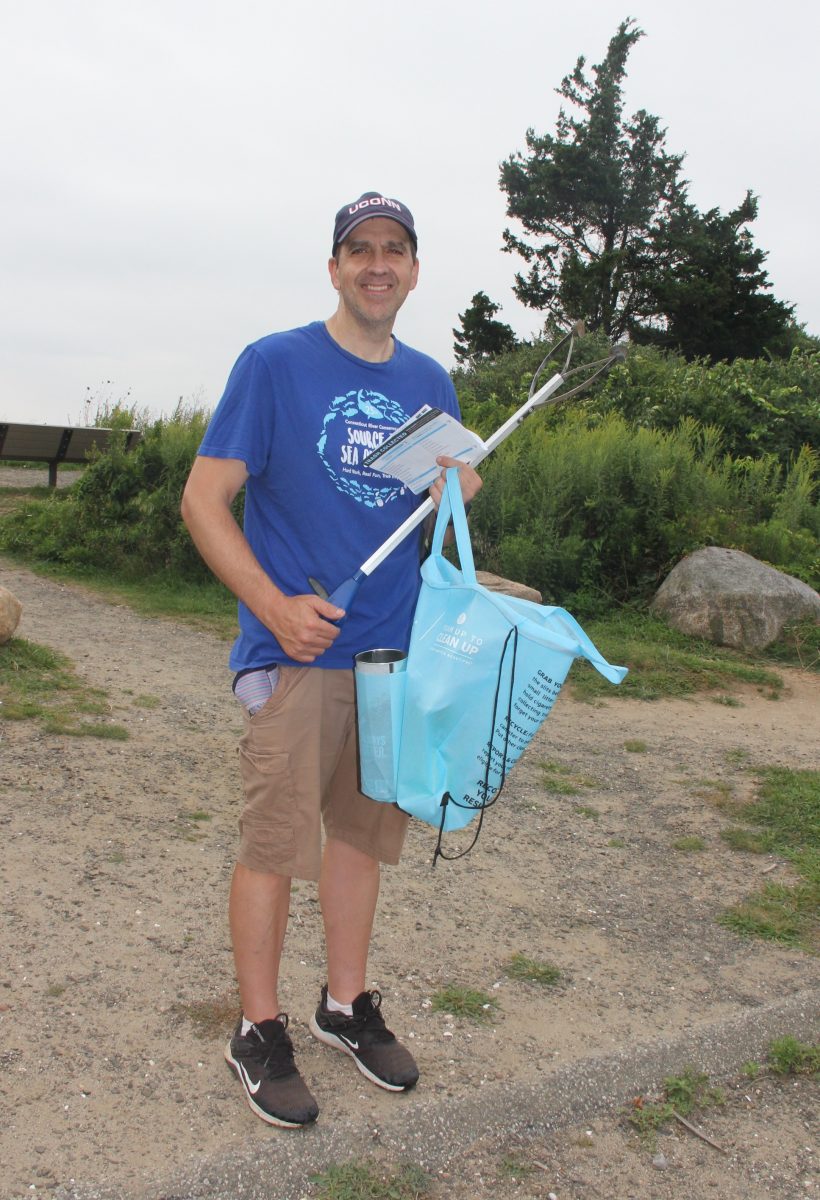
Hammonasset cleanup launches 2024 #DontTrashLISound campaign
While camping at Hammonasset Beach State Park in mid-August, the Moriello family of Bethany ended up joining 25 other volunteers picking up trash on a Saturday morning.
[Read More]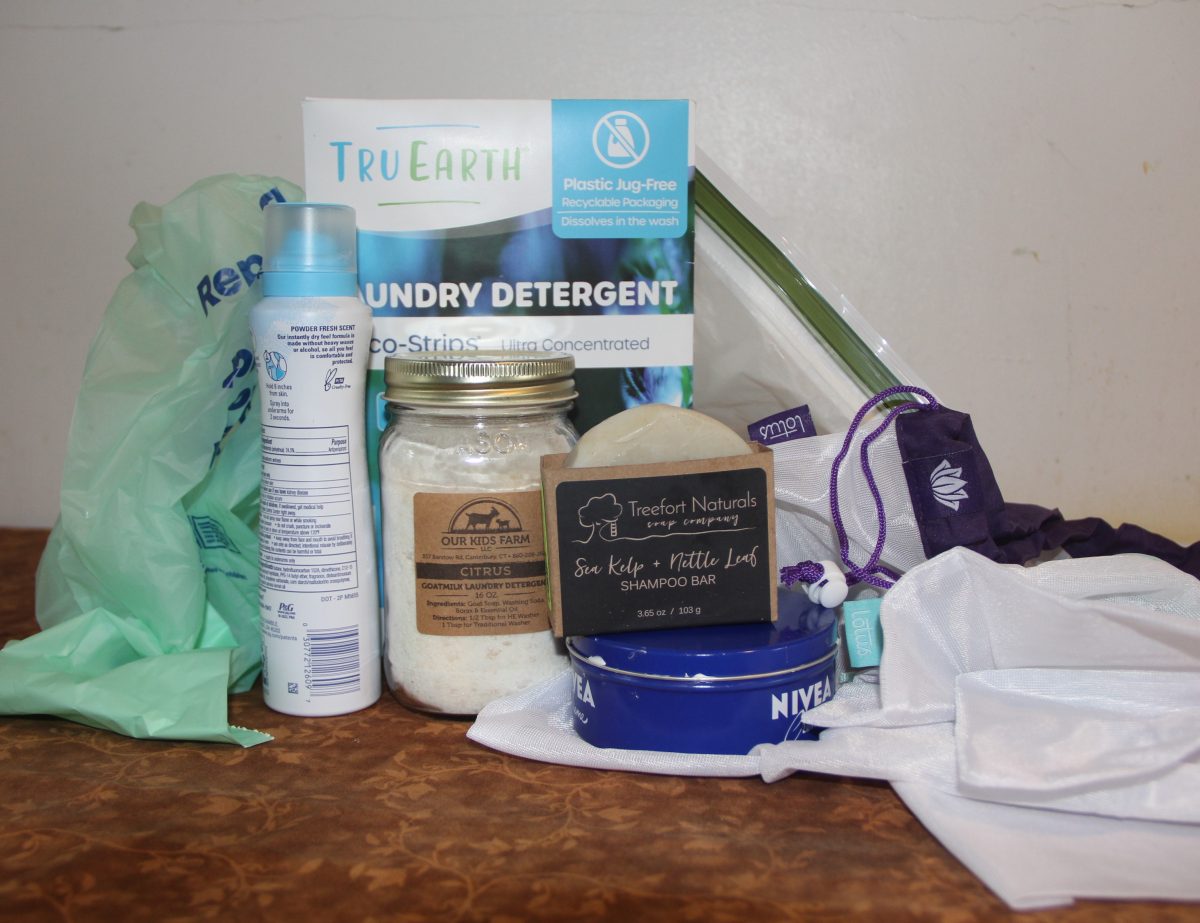
Taking a small step in a world awash in plastic
Trying to give up single-use plastics can seem like a fool’s errand, with nearly every imaginable product you can buy ensconced in plastic packaging. A few of us at CTSG decided to try anyway for a week last month, as part of the international Plastic-Free July initiative. This article, published in The Day and CT Hearst newspapers the week of Aug. 11, introduces the 8th annual #DontTrashLISound campaign that kicks off Aug. 17.
[Read More]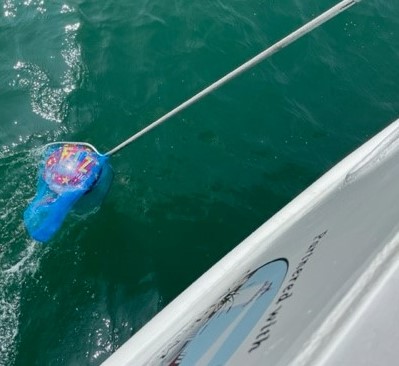
Article examines impact of balloons on Long Island Sound
Since 2017, Bill Lucey has served as the Long Island Soundkeeper, monitoring and advocating for the body of water. During the summertime, he rides his boat out three to four times a week and often finds balloons saying “Happy Graduation” or “Happy Birthday.”
[Read More]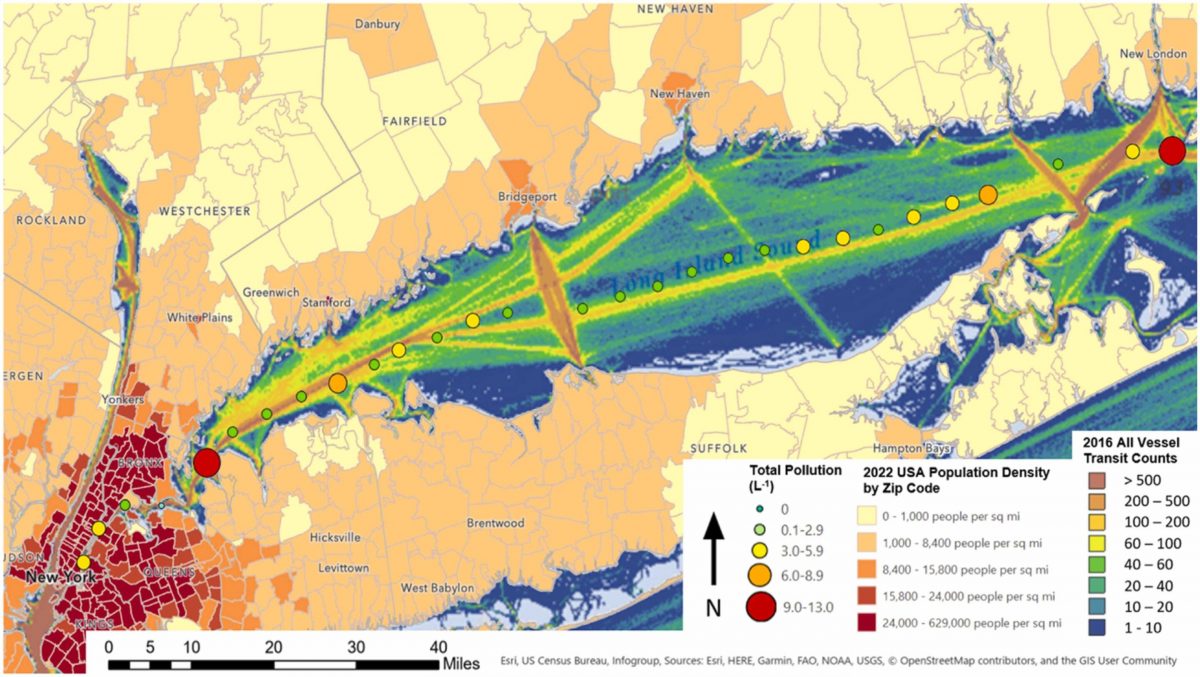
Microplastic ‘hot spots’ identified in Long Island Sound
Forensic and environmental experts have teamed up to develop a new scientific method to pinpoint microplastic pollution ‘hotspots’ in open waters, and trialed the technique in Long Island Sound.
[Read More]Sen. Blumenthal: feds should stop buying single-use plastics
In an appearance in New London on Aug. 18, U.S. Sen. Richard Blumenthal called for the federal government to phase out the purchase of single-use plastic items, like bottles, straws, wrappers and take-out containers, and microplastics.
[Read More]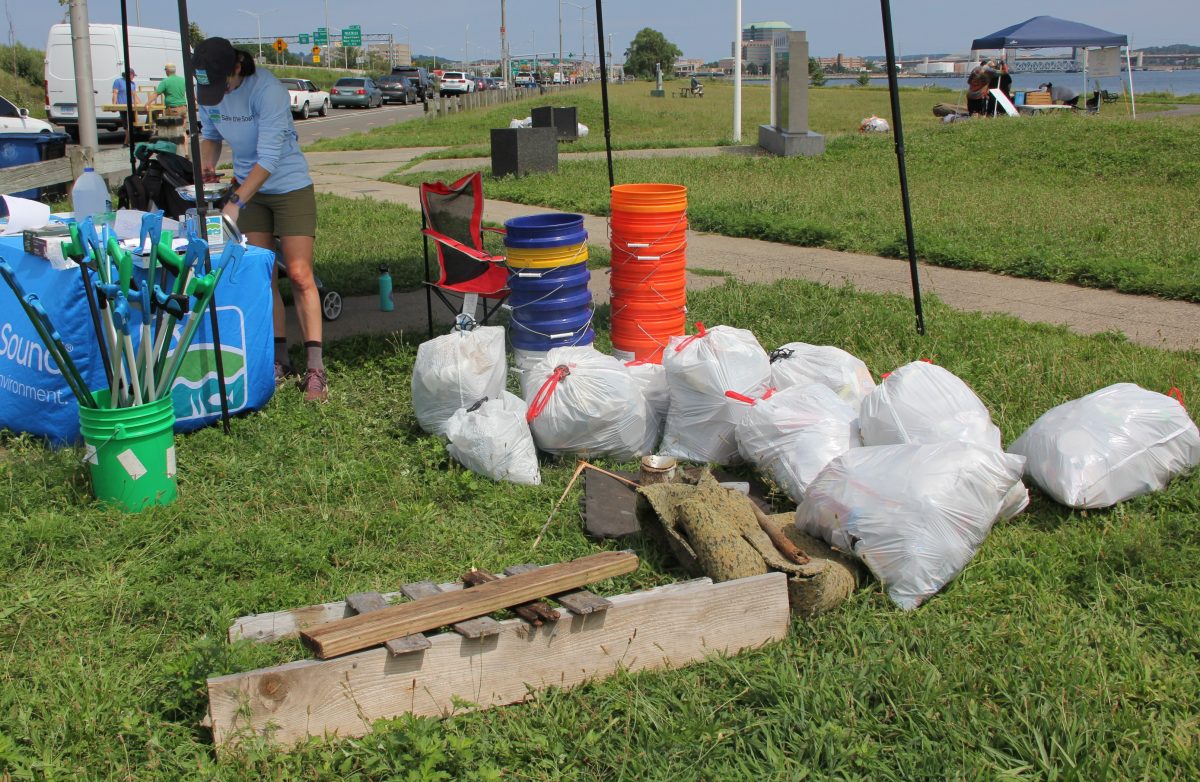
Volunteers rid 110 lbs. of trash from New Haven coastal area
Lisanne Winslow extended her trash grabber into a thicket of tall reeds to extract a partially concealed plastic soda bottle. She was one of 17 volunteers who helped rid a popular coastal walkway and adjoining nature preserve of as much trash as they could collect on a sunny morning on Aug. 12.
[Read More]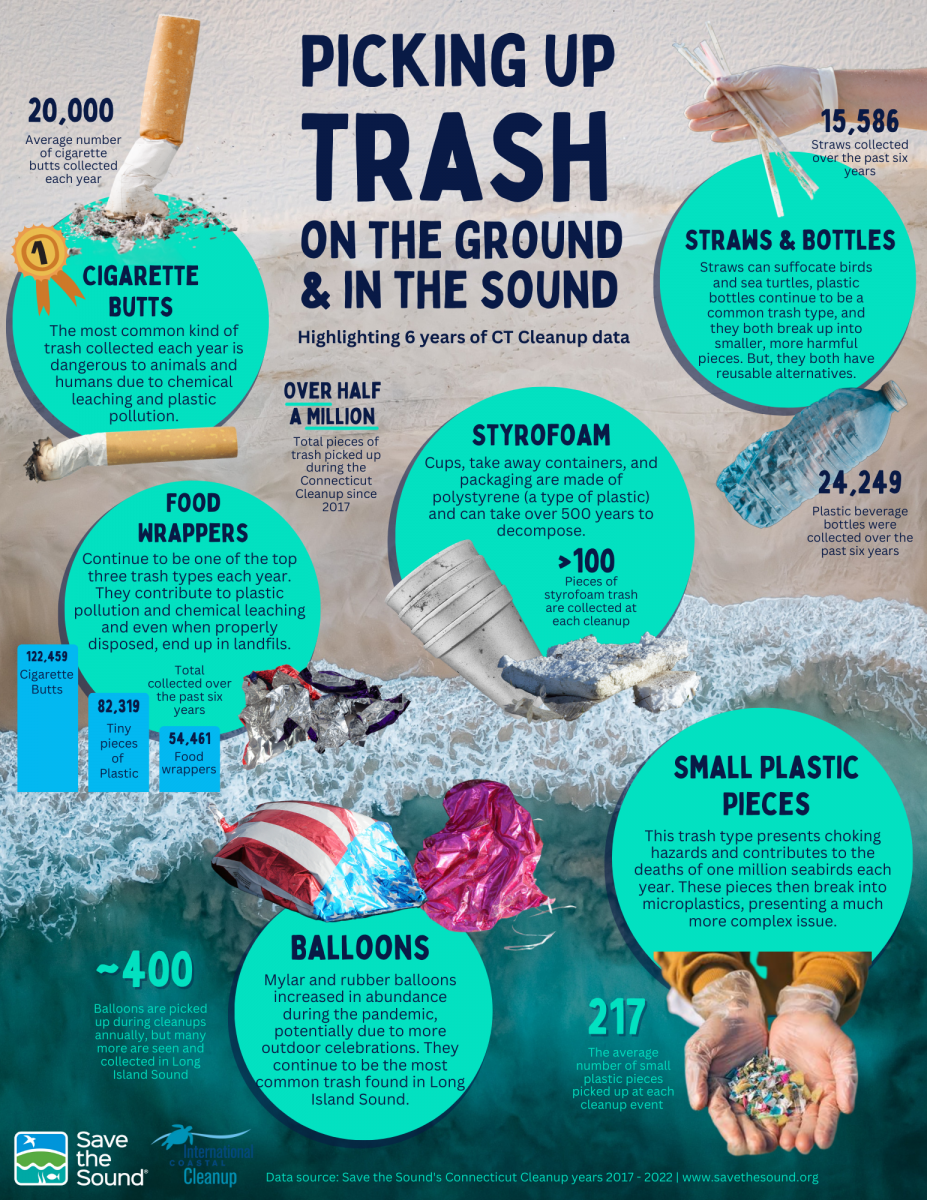
1st CT Cleanup Report Highlights Data, Impact since 2016
In its first Connecticut Cleanup Report, Save the Sound showcases its annual cleanup efforts , which have been made possible by thousands of dedicated volunteers and long-standing corporate sponsors.
[Read More]LIS Marine Debris Action Plan
Read the Long Island Sound Marine Debris Action Plan
Read the Mid-Plan Revision

LIS Marine Debris Action Plan Team:
Connecticut Sea Grant:
Nancy Balcom, CT Sea Grant co-lead: nancy.balcom@uconn.edu
Juliana Barrett
Judy Benson
Sylvain De Guise
Syma Ebbin
Diana Payne
Judy Preston
New York Sea Grant:
Kathy Bunting-Howarth, NY Sea Grant co-lead:keb264@cornell.edu; www.nyseagrant.org/marinedebris
Kathleen Fallon
Paul Focazio
Jimena Beatriz Perez-Vascasillas
Rebecca Shuford
NOAA Marine Debris Program:
Northeast Regional and Mid-Atlantic Regional coordinators
